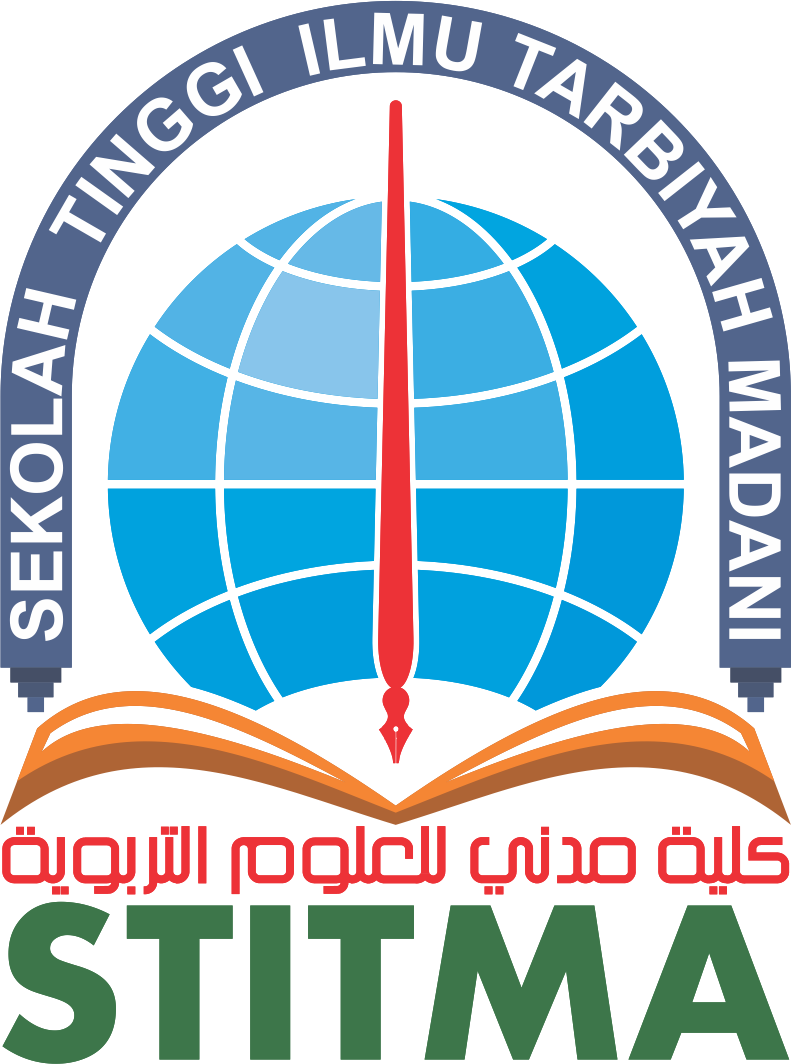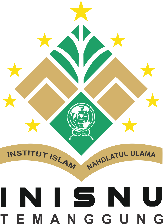Chatgpt utilization for efficient test question design: A case study at smk hisba buana semarang
DOI:
https://doi.org/10.59944/jipsi.v4i1.424Keywords:
ChatGPT, Teacher, Efficiency, Written TestAbstract
The development of artificial intelligence (AI) such as ChatGPT, is increasingly being used in the field of education, especially in the preparation of written exam questions. This study focuses on teachers at SMK Hisba Buana Semarang in utilizing ChatGPT to create written exam questions, with the aim of examining the benefits obtained, obstacles faced, and solutions that can be applied. This study was conducted using qualitative methods through interviews, observations, and document analysis, which were then processed descriptively. The results of this study are (1) Utilization of ChatGPT for teachers at SMK Hisba Buana Semarang has used ChatGPT to assist in the preparation of written test questions. The use of ChatGPT has been proven to be able to produce various types of questions, including multiple choice, essays, which are in accordance with the evaluation needs at the school. Teachers can give orders to ChatGPT to produce questions with different levels of difficulty according to the expected competencies (2) There are advantages, namely time efficiency, question variations, flexibility, increased creativity, accessibility. Some disadvantages are the accuracy of the questions, lack of specific context, no question validation, possibility of bias, technology dependence. There are several obstacles and solutions, namely training for teachers on how to use ChatGPT effectively in compiling questions, Teachers need to provide more specific input so that the questions produced are in accordance with the applicable curriculum, The questions produced need to go through a revision and validation stage before being used in the exam, Teachers must review and edit questions to ensure originality, Schools can provide facilities or alternative devices that allow the use of this technology without obstacles. In conclusion, ChatGPT can be an effective tool in the process of creating written questions, as long as it is used wisely and combined with teacher creativity, and supported by good training and adequate infrastructure.
References
Achmad Syahlani, D. S. (2021). Pengembangan Instrumen Hasil Belajar Matematika Siswa (Tes Pilihan Ganda). Jurnal AKRAB JUARA, 6(3). https://doi.org/https://doi.org/10.58487/akrabjuara.v6i3.1523
Aldwinarta, F. H., Nurdiana, R., & Sulistina, O. (2024). Media Pembelajaran Berbasis AI Chatbot pada Materi Termokimia di SMA Apakah Dibutuhkan? Jurnal Inovasi Pendidikan Kimia, 18(1), 1–6. https://doi.org/10.15294/jipk.v18i1.49044
Aliwan, Moh. Fahsin, A. L. Z. (2025). Pengelolaan sedekah sampah rosok dalam mendukung operasional Musolla al-ikhlas di desa guyangan godong kabupaten grobogan. 3, 64–74. https://doi.org/http://dx.doi.org/10.26623/dimastik.v3i1.11636
Aliwan, A. H. (2024). Etika Komunikasi Dakwah Virtual di Era Digital. Janaloka, 2(2), 221–232. https://doi.org/http://dx.doi.org/10.26623/janaloka.v2i2.11347
Andri Valen. (2020). Analisis Pemahaman Guru Dan Kemampuan Menyusun Soal Mid Semester Mata Pelajaran IPS Sekolah Dasar. JURNAL BASICEDU, 4(4), 1084–1096. https://doi.org/https://doi.org/10.31004/basicedu.v4i4.501
Ardellea, F., Hamdu, G., Pendidikan, U., Daerah, I. K., & Dasar, S. (2022). Pentingnya Kemampuan Guru Sekolah Dasar dalam Mengembangkan Soal Tes Literasi dan Numerasi Berbasis Education for Sustainable Development ( ESD ). Edu Cendikia: Jurnal Ilmiah Kependidikan, 2(2), 220–227. https://doi.org/10.47709/educendikia.v2i2.1587
Hidayati, N., Pungkasanti, P. T., Wakhidah, N., Informasi, J. T., & Semarang, U. (2020). Pemanfaatan Media Sosial Sebagai Digital Marketing Umkm Di Kecamatan Tembalang. Abdimasku, 3(3), 119–124. https://doi.org/DOI: https://doi.org/10.33633/ja.v3i3.129
Husna Nashihin, Rani Efendi, & Suci Salmiyatun. (2020). Pemanfaatan Facebook Sebagai Media Pembelajaran Pendidikan Agama Islam Pada Masa Pandemi Covid-19. At Turots: Jurnal Pendidikan Islam, 2(1), 23–37. https://doi.org/10.51468/jpi.v2i1.24
Khaerudin. (2017). Administrasi, Analisis Butir, dan Kaidah Penulisan Tes. Jurnal Madaniyah, 1(12), 100–108.
Magdalena, I., Maemunah, S., & Maya Astuti, I. (2021). Penggunaan Penilaian Teori Bloom Dalam Pembelajaran Matematika Di Kelas 3 Sd Nurul Iman Ashopi. Jurnal Pendidikan Dan Ilmu Sosial, 3(2), 178–189. https://doi.org/https://doi.org/10.36088/nusantara.v3i2.1237
Maskur, Muhammad Khoirul Anwar, T. (2021). Implementasi Pembelajaran Blended Learning Di Madrasah Ibtidaiyah Maskur , Muhammad Khoirul Anwar , Trianah Sekolah Tinggi Ilmu Agama Wali Sembilan Semarang , Sekolah Tinggi Ilmu Agama Wali Sembilan Semarang , Sekolah Tinggi Ilmu Agama Wali Sembilan Semar. Jurnal Magistra, 12(2). https://doi.org/10.31942/mgs
Mutaqin, F. M. (2023). Efektif Artificial Intelligence (Ai) Dalam Belajar Dan Mengajar. Seroja, 2.
Muthoifin, Erawati, D., Nashihin, H., Mahmudulhassan, Setiawan, B. A., Rofi, S., & Hafidz. (2024). An Interfaith Perspective on Multicultural Education for Sustainable Development Goals (SDGS). Journal of Lifestyle and SDGs Review, 4(3), e01720. https://doi.org/10.47172/2965-730X.SDGsReview.v4.n03.pe01720
Nashihin, H., Rachman, Y. A., Fitrianto, I., & Suhartono. (2025). Empowering Creativity Of Disabled Students Through Sustainable Agropreneur Education at Ainul Yakin Islamic Boarding School in Yogyakarta to Support the SDGs. Journal of Lifestyle and SDGs Review, 5(2), e02878. https://doi.org/10.47172/2965-730X.SDGsReview.v5.n02.pe02878
Nikita Nur Zulaecha, Hafidz, Biela Nanda Oktivibi Pertiwi, H. N. (2023). Pemanfaatan Media Sosial sebagai Dakwah Digital dalam Penyiaraan Agama Kalangan Kaum Milenial di Instagram (Ustadz Hanan Attaki). Attractive : Innovative Education Journal, 4(1), 1–12.
Nurul Waizah, H. (2021). Penilaian Pengetahuan Tertulis Dalam Kurikulum. Tafkir: Interdisciplinary Journal of Islamic Education, 2(2), 207–228. https://doi.org/DOI: https://doi.org/10.31538/tijie.v2i2.54
Pakaya, A. (2022). Meningkatkan Kemampuan Guru Dalam Menyusun Tes Hasil Belajar Melalui Supervisi Akademik di SDN No. 93 Kota Utara Kota Gorontalo. Jurnal Pendidikan Masyarakat Dan Pengabdian, 02(93), 931–938. https://doi.org/: http://dx.doi.org/10.37905/dikmas.2.3.931-938.2022 ABSTRAK
Putri, H., Susiani, D., Wandani, N. S., & Putri, F. A. (2022). Instrumen Penilaian Hasil Pembelajaran Kognitif pada Tes Uraian dan Tes Objektif. Jurnal Papeda, 4(2), 139–148.
Syaiful Anam, H. N. (2023). Metode Penelitian (Kualitatif, Kuantitatif, Eksperimen, dan R&D). PT GLOBAL EKSEKUTIF TEKNOLOGI. https://books.google.co.id/books?hl=id&lr=&id=w-bFEAAAQBAJ&oi=fnd&pg=PA1&ots=vRP1bKcVRG&sig=dA4E7fb8uf45B7Uv87JkztTGviQ&redir_esc=y#v=onepage&q&f=false
Tantan Hadian, S. P. (2023). Berteman dengan ChatGPT: Sebuah Transformasi dalam Pendidikan (nana mulyana (ed.); 1st ed., p. 36). Edu Publisher.
Utomo, B. (2019). Analisis Validitas Isi Butir Soal sebagai Salah Satu Upaya Peningkatan Kualitas Pembelajaran di Madrasah Berbasis Nilai-Nilai Islam. Jurnal Pendidikan Matematika (Kudus), 1(2). https://doi.org/10.21043/jpm.v1i2.4883
Yudi Herdiana, L. J. D. (2025). ChatGPT MASTERY : Pengenalan dan Penguasaan ChatGPT secara Proporsional (Efitra (ed.); 1st ed.). PT Sonpedia Publishing Indonesia.




























